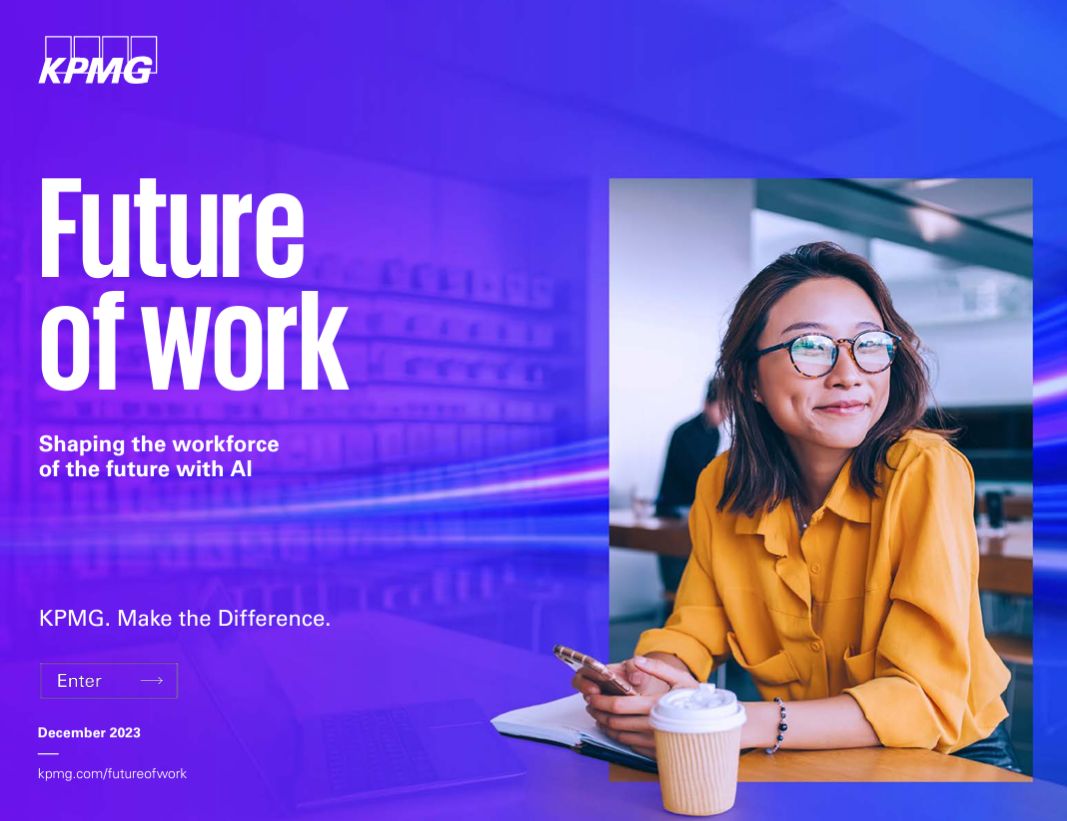In an ever-changing world of technology and digitalization, it is no longer about just adopting artificial intelligence (AI) but also about building trust in its potential to drive transformation and exponential growth. Industry leaders must position AI at the very heart of their business strategy instead of treating it as an afterthought.
This aligns with Malaysia’s forward-thinking initiatives such as the Malaysia AI Roadmap 2021-2024 (AI-Rmap) and “AI untuk Rakyat”. These programs go beyond adoption to focus on nurturing AI talents and foster an AI-centric culture. However, as revealed by the AI-Rmap survey, inadequate expertise remains a major hurdle.
The Future of work report explores the perceptions of employees on the future of work amid post-pandemic recovery, fast AI advancements, unstable geopolitical instability, and a looming global recession. It provides leaders the insights they need to begin to understand where their people are in their transformation journey today.
Based on more than 4,000 employees from a cross-section of generations in the workplace, this KPMG-led research report delves into the minds of employees to understand how they feel about advanced technologies today and their confidence in their organizations’ plans for a future with AI. The analysis looks at primary and secondary data, as well as specialist opinions from leading professionals in Australia, Canada, Germany, the UK, and the US across various industries such as consumer/ retail, government, healthcare and life sciences, financial services, technology.

Industry leaders in Malaysia must prioritize their workforce’s challenges in the AI journey. By effectively equipping employees and navigating these challenges, they can capitalize on the true potential of AI growth and maintain competitive advantages within the continuously evolving business landscape.

Sharmini Ann Jacob
Executive Director, Business Transformation - People & Change
KPMG in Malaysia
Executive Director, Business Transformation - People & Change
KPMG in Malaysia
Findings from the KPMG-led research on the future of work include:
54%
The research shows workers lack awareness of, and confidence in, their firms’ technology strategies. Despite the race to embrace AI, little more than half of respondents (54 percent) said their employer has adopted new technologies over the past three years.
66%
Sixty-six percent of employees expect technology to enhance their productivity over the next three years. More than a third say new technology will automate as much as 30 percent of their job; a quarter think it could automate up to half of their job.
2/5
Almost two in five workers feel that productivity improvements are outweighed by the effect on their wellbeing and mental health. A fifth believe technology has impaired their productivity.
36%
Thirty-six percent say their organization is unclear on how its workforce must change to meet future business and customer needs based on the company’s current data and technology stack.
62%
Sixty-two percent say a company’s investment in upskilling influences their decision to join, leave or stay with an organization whereas only 56% say their organization is proactively investing in reskilling and upskilling.
How can leaders harness the combined potential of AI and their workforce?
Embrace the power of AI
Leaders should experiment with generative AI to make the most of it within their organizations. They should also equip their workforce with the right tools that can enhance their work today, while offering the development opportunities to prepare for the future.
Shape the workforce of the future
In an AI-first world, organizations should expect to adopt an AI-first mindset. They should enhance the workforce mix, balancing the ‘buying’ new skills with upskilling existing employees.
Learn in the flow of work
With the pace of technological change, businesses, and employees should adjust to living in a constant state of learning. Upskilling will likely be continual to stay in line with technological advances.
Lead from the middle
People leaders should turbocharge the organization as it pursues the future of work. A conduit between senior leadership and employees, middle managers can help translate technology strategies into action and outcomes on their teams, if they are equipped and skilled to do so.
With no fixed end-state to aim for, business leaders should carefully plan AI transformation for their organizations by intentionally considering how they can effectively lead their people along the journey to the future of work. Ready to help unleash the potential of your people as you bring AI to your organization? This blueprint can help you steer your organization toward the future of work. Download the report.




